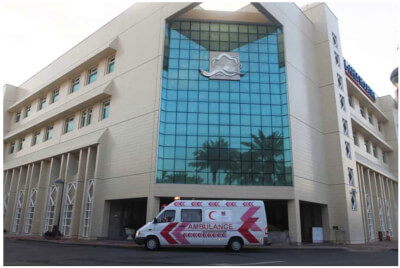Anti-Arab bias in political lawsuit against Arab Bank
The U.S. Supreme Court will consider an outrageously illegal lawsuit that blames the victims of Israeli violence for their resistance against oppression. The lawsuit excludes pro-Palestinian and Arab victims of Israeli violence and should be expanded. The lawsuit should also represent defendants who have been victimized by Israeli terrorism and violence and by institutions that have supported Israel’s violence against Palestinians, Arabs and Muslims
By Ray Hanania
Biased American legal system that discriminates against the rights of Arabs and Muslims in favor of the rights of pro-Israel activists pushes biased lawsuit targeting Arab Bank in Jordan.
The U.S. Supreme Court has decided to review a lawsuit that unfairly distorts the reality of the victims of the nearly century long war between Palestine and Israel. Hopefully the Supreme Court will see through the bias in the lawsuit and reject it.
Israel and its Arab neighbors have been in a state of war for nearly 100 years. Individual Palestinian organizations have turned to violent resistance to prosecute their claims against Israel, and Israel has used violence to respond to Palestinian efforts to recover land forcibly taken by Israel’s government.
It’s called war. The two sides have been at war and sadly both sides have seen victims who have suffered as a result of that war. But the lawsuit the U.S. Supreme Court is considering only addresses the suffering of one side of that war, and ignores the violations of international law by Israel and Israel’s use of violence and terrorism to oppress Palestinians, Arabs and Muslims which has pushed individuals in those communities to turn to violence in response.
While many innocent civilians with dual Israeli and American citizenship have been victims of pro-Palestinian violence, even more Palestinians, Arabs and Muslims have been the victims of pro-Israel violence and terrorism. And no one is seeking to represent their legal rights.

The lawsuit also embraces the illegal concept of “Collective punishment.”
The fact that the Arab Bank has provided support to families of individuals persecuted by Israel, individuals who have in many cases been falsely accused of terrorism or who have been denied the right to proper legal representation and railroaded through the Israeli court system is not the crime the lawsuit asserts.
The families of alleged terrorists and suspects condemned but denied proper legal representation have also been victimized by Israel. Even though family members were not involved in the alleged violent acts, Israel has treated them all as if they were complicit.
The United Nations and many nations have denounced this Israeli form of racism as “collective punishment” which is a violation of international laws.
Additionally, the lawsuit ignores the violence and terrorism of the sponsors of the individuals they represent who also engaged in violence against non-Jewish civilian targets.
This lawsuit is the most unjust, hypocritical lawsuit presented to the American judicial system. It should be thrown out and the U.S. Supreme Court should reject this lawsuit as being biased and politically partisan. It ignores foreign victims of Israeli terrorism.
(Ray Hanania is an award winning columnist, author and former Chicago City Hall reporter. Email him at rghanania@gmail.com.)
Here is the press release from the lawfirm representing the anti-Arab and anti-Muslim plaintiffs:
Supreme Court to Decide if Arab Bank PLC is Subject to Lawsuit Brought by Terror Victims. U.S. suit filed by Motley Rice LLC and others seeks justice for foreign victims of attacks abroad, allegedly funded by bank with previous New York City branch
MT. PLEASANT, S.C., April 3, 2017 /PRNewswire/ — The Supreme Court today granted the petition for a writ of certiorari filed on behalf of approximately 6,000 persons injured or family members of people killed in terrorist attacks that took place in Israel and the Palestinian Territories between January 1995 and July 2005 against Jordan-based Arab Bank PLC.
The Court, in Jesner, et al., v. Arab Bank, PLC, Case No. 16-499, will determine whether corporations may violate customary international law and whether they are immune from cases brought under the Alien Tort Statute (ATS). Motley Rice LLC, one of the nation’s largest plaintiffs’ firms, attorneys Michael E. Elsner, Jodi Westbrook Flowers and John M. Eubanks are counsel for the plaintiffs, along with Jeffrey L. Fisher of Stanford Law School and Mark Werbner of Sayles Werbner PC.
Plaintiffs – including citizens of Afghanistan, Argentina, Canada, France, Israel, the Philippines, Poland, Romania, Russia, Ukraine and Uzbekistan, among others – claim that Arab Bank, which operated a federally chartered branch in New York City for 20 years (from 1983 through 2005), participated in a program to pay the families of suicide bombers and other terrorists who targeted civilians in terrorist attacks. Plaintiffs further allege that Arab Bank knowingly and intentionally provided banking services to virtually every terrorist organization operating within the Palestinian Territories including groups such as Hamas, Palestinian Islamic Jihad, the Al-Aqsa Martyrs’ Brigades, and the Popular Front for the Liberation of Palestine, among others.
Plaintiffs claim the bank served as the administrator for a program on behalf of the Saudi Committee for the Support of the Intifada al Quds that provided a standard benefit of $5,316.06 to the families of Palestinians, including suicide bombers, who were killed in attacks against civilians. The Saudi Committee transferred payments exceeding $100 million through Arab Bank’s New York branch to be converted into U.S. dollars to allow a free flow of money to terrorists in the Palestinian Territories. The Bank also held bank accounts for such renowned terrorists as Sheikh Ahmed Yassin, the founder and spiritual leader of Hamas; Saleh Shehadeh, another founder of Hamas and the founder of the military wing of Hamas; and Ismail Haniyeh, the former head of the Hamas government in Gaza. The list of accountholders at the Bank served as a “who’s who” in terrorist circles in the Palestinian Territories.
Based on the alleged integral role of the bank’s New York branch in providing a fungible currency source for the terrorists, plaintiffs assert that Arab Bank should be subject to suit under the ATS because the statute grants jurisdiction to federal district courts “of any civil action by an alien for a tort only, committed in violation of the law of nations or a treaty of the United States.” Nevertheless, the U.S. Court of Appeals for the Second Circuit in New York has determined that corporations such as Arab Bank cannot be sued for violating international laws under the Alien Tort Statute. The Supreme Court has taken this case to resolve a conflict between the Second Circuit on one hand and the U.S. Courts of Appeals for the D.C., Fourth, Seventh, Ninth, and Eleventh Circuits on the other. All other circuits to address this issue have found corporations as potentially liable under the Alien Tort Statute.
“Immunizing corporations who finance terrorists from liability for violations of customary international law is wrong and inconsistent with the language and purpose behind the ATS,” said Motley Rice LLC attorney for the plaintiffs, Michael Elsner. “Our clients welcome the Supreme Court’s resolution of the conflict that has developed between the Second Circuit and the other Circuit Courts around the country that have decided that corporations, just like private citizens, should be responsible for violations of customary international law. This decision has important implications for the fight against global terrorism. Disarming clients from their right to bring civil lawsuits is a victory for terrorist financiers.”
The ATS claims were previously consolidated with claims of American citizens asserting claims against Arab Bank under the Anti-Terrorism Act (ATA). On September 22, 2014, a Brooklyn jury found Arab Bank liable for 22 separate terrorist attacks carried out by Hamas between March 2001 and September 2004 in the claims brought by U.S. citizens under the ATA. A confidential settlement was reached in the American cases days before a second phase of the trial to establish financial damages was set to commence in August 2015. The ATA liability verdict is currently on appeal before the Second Circuit. The Motley Rice LLC Anti-Terrorism and Human Rights team represented more than 130 American citizens in the ATA case.
Prior to reaching the Supreme Court, the non-American cases against Arab Bank have encountered a lengthy judicial history:
- On January 29, 2007, U.S. District Judge Nina Gershon of the Eastern District of New York denied Arab Bank’s motion to dismiss the claims of the non-American victims determining they had adequately pleaded allegations that Arab Bank had violated the law of nations.
- On September 17, 2010, the U.S. Court of Appeals for the Second Circuit issued an opinion in Kiobel v. Royal Dutch Petroleum Co., that corporations could not be held liable under the ATS.
- On April 17, 2013, the Supreme Court affirmed the Second Circuit’s decision in Kiobel on other grounds; however, it did not explicitly overturn the Second Circuit’s determination regarding corporate immunity from ATS litigation.
- The trial judge dismissed plaintiffs’ ATS claims based solely on the Second Circuit’s decision immunizing corporations from suit under the ATS.
- In December 2015, a three-judge panel of the Second Circuit – while disagreeing with Kiobel and unsure of the impact of the Supreme Court’s decision on the continued vitality of the Second Circuit precedent – refused to overturn Kiobel and deferred to en banc consideration or a reversal by the Supreme Court.
- The Second Circuit refused to hear the case en banc on May 5, 2016, stating that the record was clear enough, and the issue divisive enough, for the Supreme Court to take up the issue.
- On Oct. 5, 2015, plaintiffs petitioned the Supreme Court to hear the case.
Arab Bank is headquartered in Amman, Jordan, and is one of the largest financial institutions in the Middle East with a global network of more than 600 branches and offices in 30 countries, including the United States.
Read more about the litigation.
About Motley Rice LLC
Motley Rice is one of the nation’s largest plaintiffs’ litigation firms. With a tradition of representing those whose rights have been violated, Motley Rice attorneys gained recognition for their pioneering asbestos lawsuits, their work with the State Attorneys General in the landmark litigation against Big Tobacco, and their representation of 9/11 families in the ongoing lawsuit against terrorist financiers. The firm continues to handle complex litigation in numerous areas, including securities fraud; antitrust; consumer protection; mesothelioma; environmental contamination; prescription and over-the-counter drugs; other medical devices; human rights; aviation disasters; and wrongful death. Motley Rice is headquartered in Mt. Pleasant, S.C., and has additional offices in Connecticut; Louisiana; Washington, D.C.; New York; Missouri; Rhode Island; and West Virginia. For more information, contact Motley Rice attorney Michael E. Elsner (NY, SC, VA) at 1.800.768.4026 or visit www.motleyrice.com. Connect with us on Facebook, LinkedIn, and Twitter.


- Israelisnipers shooting and killing hospital workers in Gaza - December 11, 2023
- CAIR Condemns Israeli Executions of Wounded, Unarmed Palestinian in West Bank - December 11, 2023
- Arab and Muslim American voters face a “simple choice” between Biden’s inhumanity and Trump’s edgy politics - December 9, 2023
























